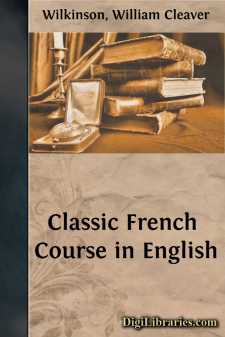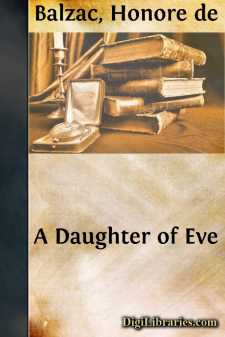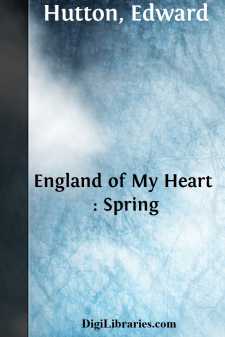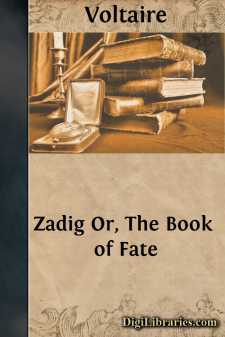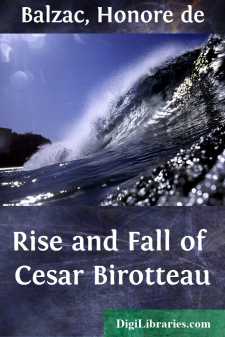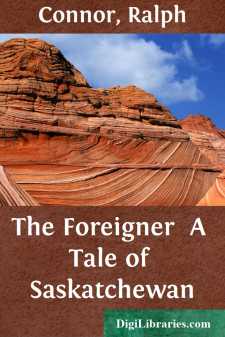Categories
- Antiques & Collectibles 13
- Architecture 36
- Art 48
- Bibles 22
- Biography & Autobiography 813
- Body, Mind & Spirit 142
- Business & Economics 28
- Children's Books 17
- Children's Fiction 14
- Computers 4
- Cooking 94
- Crafts & Hobbies 4
- Drama 346
- Education 46
- Family & Relationships 57
- Fiction 11829
- Games 19
- Gardening 17
- Health & Fitness 34
- History 1377
- House & Home 1
- Humor 147
- Juvenile Fiction 1873
- Juvenile Nonfiction 202
- Language Arts & Disciplines 88
- Law 16
- Literary Collections 686
- Literary Criticism 179
- Mathematics 13
- Medical 41
- Music 40
- Nature 179
- Non-Classifiable 1768
- Performing Arts 7
- Periodicals 1453
- Philosophy 64
- Photography 2
- Poetry 896
- Political Science 203
- Psychology 42
- Reference 154
- Religion 513
- Science 126
- Self-Help 84
- Social Science 81
- Sports & Recreation 34
- Study Aids 3
- Technology & Engineering 59
- Transportation 23
- Travel 463
- True Crime 29
Classic French Course in English
Categories:
Description:
Excerpt
FRENCH LITERATURE.
Of French literature, taken as a whole, it may boldly be said that it is, not the wisest, not the weightiest, not certainly the purest and loftiest, but by odds the most brilliant and the most interesting, literature in the world. Strong at many points, at some points triumphantly strong, it is conspicuously weak at only one point,—the important point of poetry. In eloquence, in philosophy, even in theology; in history, in fiction, in criticism, in epistolary writing, in what may be called the pamphlet; in another species of composition, characteristically, peculiarly, almost uniquely, French,—the Thought and the Maxim; by eminence in comedy, and in all those related modes of written expression for which there is scarcely any name but a French name,—the jeu d'esprit, the bon mot, persiflage, the phrase; in social and political speculation; last, but not least, in scientific exposition elegant enough in form and in style to rise to the rank of literature proper,—the French language has abundant achievement to show, that puts it, upon the whole, hardly second in wealth of letters to any other language whatever, either ancient or modern.
What constitutes the charm—partly a perilous charm—of French literature is, before all else, its incomparable clearness, its precision, its neatness, its point; then, added to this, its lightness of touch, its sureness of aim; its vivacity, sparkle, life; its inexhaustible gayety; its impulsion toward wit,—impulsion so strong as often to land it in mockery; the sense of release that it breathes and inspires; its freedom from prick to the conscience; its exquisite study and choice of effect; its deference paid to decorum,—decorum, we mean, in taste, as distinguished from morals; its infinite patience and labor of art, achieving the perfection of grace and of ease,—in one word, its style.
We speak, of course, broadly and in the gross. There are plenty of French authors to whom some of the traits just named could by no means be attributed, and there is certainly not a single French author to whom one could truthfully attribute them all. Voltaire insisted that what was not clear was not French,—so much, to the conception of this typical Frenchman, was clearness the genius of the national speech. Still, Montaigne, for example, was sometimes obscure; and even the tragedist Corneille wrote here and there what his commentator, Voltaire, declared to be hardly intelligible. So, too, Rabelais, coarsest of humorists, offending decorum in various ways, offended it most of all exactly in that article of taste, as distinguished from morals, which, with first-rate French authors in general, is so capital a point of regard. On the other hand, Pascal,—not to mention the moralists by profession, such as Nicole, and the preachers Bourdaloue and Massillon,—Pascal, quivering himself, like a soul unclad, with sense of responsibility to God, constantly probes you, reading him, to the inmost quick of your conscience....


